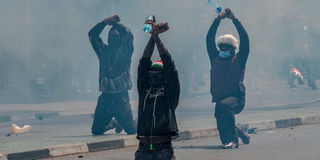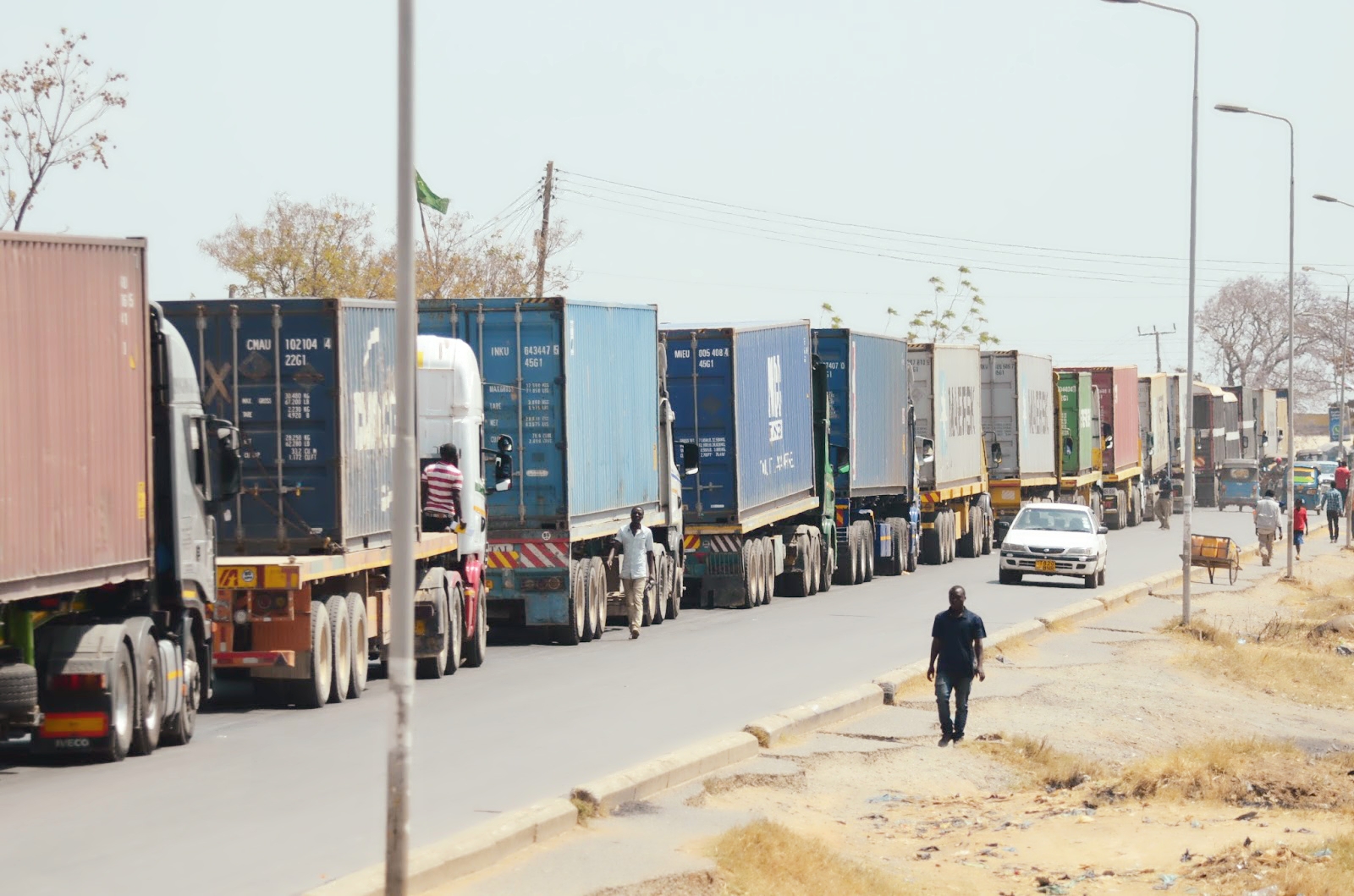Kenya torn between anger and mourning after protest deaths

Demonstrators gesture as they knee in front of Kenyan security forces during a nationwide strike to protest against tax hikes and the Finance Bill 2024 in downtown Nairobi, on June 25, 2024. PHOTO | AFP
What you need to know:
- Tensions ran especially high in Nairobi, where according to an NGO police opened fire on demonstrators who stormed parliament, where lawmakers were voting on the bill containing the tax rises.
Nairobi. After waiting for hours outside a morgue in the capital Nairobi, gripped by protests against the Kenyan government's controversial tax rises, Florence Onyango received the news she had been dreading.
"A friend of mine died because he was demonstrating yesterday close to the parliament. He was shot in the head," the 47-year-old told AFP, tears welling up in her eyes.
"His name was Eric and he was only 22. Young people can't be killed for no reason."
Her friend was just one of a score of demonstrators killed in a day of mainly youth-led protests against deeply unpopular tax hikes across the East African country Tuesday.
Tensions ran especially high in Nairobi, where according to an NGO police opened fire on demonstrators who stormed parliament, where lawmakers were voting on the bill containing the tax rises.
Parts of the parliament were set ablaze, prompting President William Ruto's government to deploy the army.
The scale of the violence prompted Ruto to say Wednesday afternoon he would not sign into law but would instead withdraw the contentious tax hikes -- even if the move meant a significant shortfall in funding for development programmes designed to help farmers and schoolteachers.
Rights groups say the police fired live rounds at the demonstrators, and have also accused the authorities of abducting protesters.
The Kenya National Human Rights Commission (KNHRC) counted 22 deaths in the country, including 19 in Nairobi.
The unrest also led to "more than 300 injured and more than 50 arrests", the commission's chairwoman Roseline Odede said.
On Wednesday, Nairobi's central business district still bore the scars of the previous day's violence.
The husk of a burnt-out car lay in a gutter, and the smell of tear gas hung in the air around parliament.
Nearby, dried blood stained the ground red.
'More violence and chaos'
Before returning to work, Steve hurried along Parliament Road to revisit the scene of the protest he had taken part in.
"The government does not care about us because they shot us with live bullets," the 40-year-old farmer said, blaming Ruto for having "victimised innocent people".
Despite the deaths, Steve was undeterred: "I will demonstrate again tomorrow, and I expect more violence and chaos."
In the face of the unrest, parliament passed the bill with the tax hikes on Tuesday afternoon, and it needed only Ruto's signature to become law before he dramatically reversed course Wednesday.
Protesters had earlier vowed to take to the streets again Thursday, calling for the bill to be scrapped entirely.
One of the leading figures in the anti-government protest movement, journalist and activist Hanifa Adan, called for Thursday's protest to be a "peaceful" march in memory of the victims.
But standing in front of the parliament's smashed gates, where a heavy police presence stood guard, Penina Njeri did not believe that would be possible.
After Tuesday's deaths, "it will feel more violent, because people are very angry, people are bitter," Njeri told AFP.
The intensity of opposition to the tax rises has surprised Ruto's cash-strapped government.
The movement, dubbed "Occupy Parliament", took off on social media shortly after the draft 2024-25 budget was presented to parliament on June 13.
Its hikes, including a 16 percent value-added tax on bread and a 2.5 percent annual tax on private vehicles, angered Kenyans already struggling with a cost-of-living crisis.
The rallies -- mostly led by young Gen-Z Kenyans -- were largely peaceful before Thursday.
But even before then, the protests had already been marred by the deaths of two people in Nairobi, dozens injured and hundreds arrested.
In the corridors of the Kenyatta National Hospital (KNH), Kenya's largest, the stress was etched into the doctors' faces.
More than 160 people have been treated there for injuries, many of them gunshot wounds.
"As a hospital, we are prepared" for further protests, surgeon Benjamin Wabwire told AFP.
"But we are hoping we shall not have another yesterday tomorrow."





